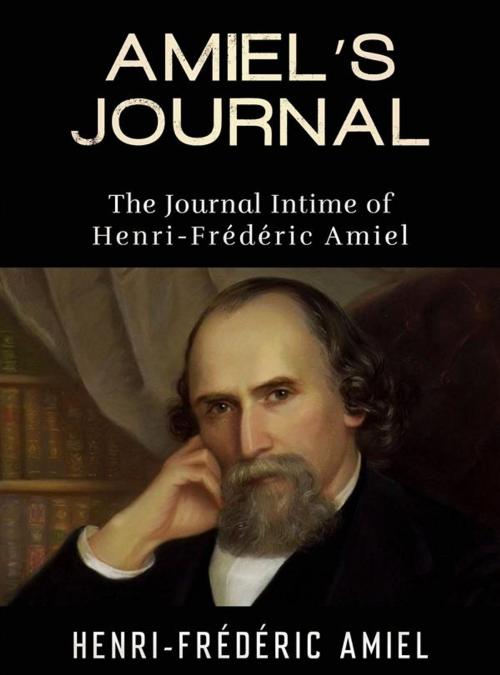AMIEL’S JOURNAL - The Journal Intime of Henri-Frédéric Amiel
Biography & Memoir, Artists, Architects & Photographers, Nonfiction, Art & Architecture| Author: | Henri, Frédéric Amiel | ISBN: | 9788822814333 |
| Publisher: | David De Angelis | Publication: | August 21, 2017 |
| Imprint: | Language: | English |
| Author: | Henri, Frédéric Amiel |
| ISBN: | 9788822814333 |
| Publisher: | David De Angelis |
| Publication: | August 21, 2017 |
| Imprint: | |
| Language: | English |
Henri Frédéric Amiel was a Swiss moral philosopher, poet, and critic. Born in Geneva in 1821, he was descended from a Huguenot family driven to Switzerland by the revocation of the Edict of Nantes. After losing his parents at an early age, Amiel travelled widely, became intimate with the intellectual leaders of Europe, and made a special study of German philosophy in Berlin. In 1849 he was appointed professor of aesthetics at the academy of Geneva, and in 1854 became professor of moral philosophy. These appointments, conferred by the democratic party, deprived him of the support of the aristocratic party, whose patronage dominated all the culture of the city. This isolation inspired the one book by which Amiel is still known, the Journal Intime ("Private Journal"), which, published after his death, obtained a European reputation. It was translated into English by British writer Mary Augusta Ward at the suggestion of academic Mark Pattison. Although modest in volume of output, Amiel's mind was of no inferior quality, and his Journal gained a sympathy that the author had failed to obtain in his life. In addition to the Journal, he produced several volumes of poetry and wrote studies on Erasmus, Madame de Stael and other writers. His extensive correspondence with Égérie, his muse name for Louise Wyder, was preserved and published in 2004. He died in Geneva.
Henri Frédéric Amiel was a Swiss moral philosopher, poet, and critic. Born in Geneva in 1821, he was descended from a Huguenot family driven to Switzerland by the revocation of the Edict of Nantes. After losing his parents at an early age, Amiel travelled widely, became intimate with the intellectual leaders of Europe, and made a special study of German philosophy in Berlin. In 1849 he was appointed professor of aesthetics at the academy of Geneva, and in 1854 became professor of moral philosophy. These appointments, conferred by the democratic party, deprived him of the support of the aristocratic party, whose patronage dominated all the culture of the city. This isolation inspired the one book by which Amiel is still known, the Journal Intime ("Private Journal"), which, published after his death, obtained a European reputation. It was translated into English by British writer Mary Augusta Ward at the suggestion of academic Mark Pattison. Although modest in volume of output, Amiel's mind was of no inferior quality, and his Journal gained a sympathy that the author had failed to obtain in his life. In addition to the Journal, he produced several volumes of poetry and wrote studies on Erasmus, Madame de Stael and other writers. His extensive correspondence with Égérie, his muse name for Louise Wyder, was preserved and published in 2004. He died in Geneva.















